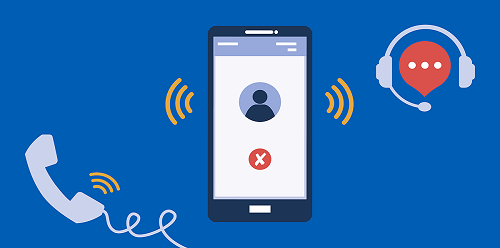Phishing Scams Can be Hard to Spot
Scammers love a good disguise. One day they show up texting you about a delivery you missed, the next they say you need to sort out an issue with your Netflix account. Here’s how to avoid these phishing scams.
Phishing emails and text messages often tell a story to trick you into clicking on a link or opening an attachment. Maybe it’s an unexpected email or text message pretending to be from a company you know or trust, like a utility company or service provider asking you to make a payment or maybe it’s an unexpected party invitation that looks like it’s from a friend or family member.
The message could be from a scammer, who might:
- say they’ve noticed some suspicious activity or log-in attempts — they haven’t
- claim there’s a problem with your account or your payment information — there isn’t
- say you need to confirm some personal or financial information — you don’t
- include an invoice you don’t recognize — it’s fake
- want you to click on a link to make a payment — but the link has malware
- say you’re eligible to register for a government refund — it’s a scam
- offer a coupon for free stuff — it’s not real
Don’t click on links or download attachments in these messages. It might lead to a request for personal information, like your Social Security, credit card, or bank account number or the link or attachment could download harmful malware onto your device.
How can you spot these scams? If you get an email or text message that asks you to click on a link or open an attachment, ask yourself: Do I have an account with the company or know the person who contacted me?
If the answer is “No,” it’s likely a phishing scam. While real companies might communicate with you by email, legitimate companies won’t unexpectedly email or text with a link to update your payment or account information. For other signs of phishing, check out “How to recognize phishing.”
If the answer is “Yes,” contact the company using a phone number or website you know is real — not the information in the email or contact your friend directly on a separate email or text string to confirm it’s really them. They’ll understand if you’re suspicious about that unexpected invitation to click a link.
Learn more about how to spot, avoid, and report scams—and how to recover money if you’ve paid a scammer—at ftc.gov/scams. If you spot a scam, report it to the FTC at ReportFraud.ftc.gov.
Online Source: Ari Lazarus, Consumer Education Specialist, FTC, consumer.ftc.gov
NE PA Credit Union, A Division of UECU, cares about its members and serves to be a resource for you. If you think you are being scammed and your account is at risk, please do not hesitate to contact us. Members can call 570-421-5585, ext. 1178, or log in to their account to start a secure online chat.
